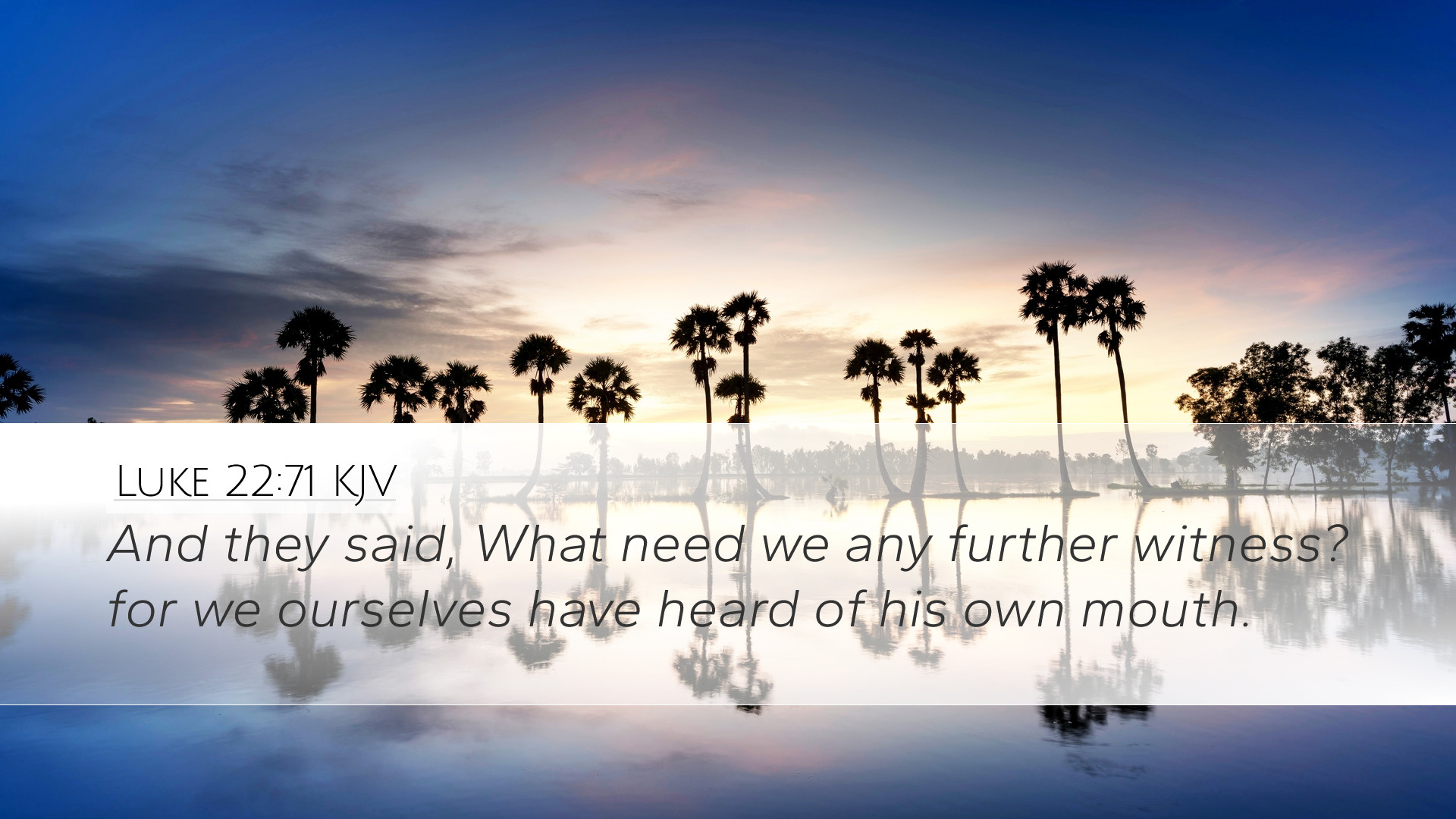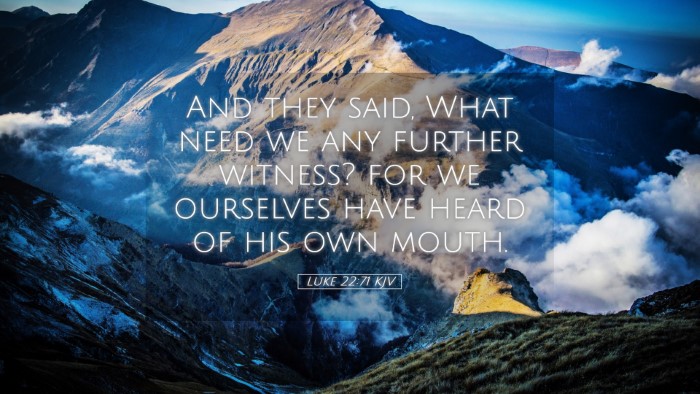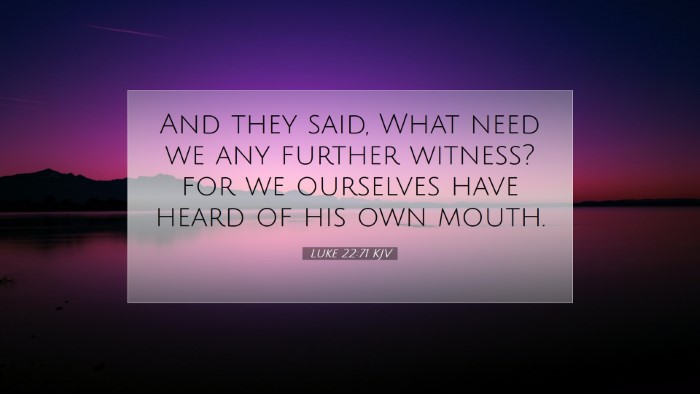Bible Commentary on Luke 22:71
Luke 22:71 states: "And they said, What need we any further witness? for we ourselves have heard of his own mouth."
Contextual Background
The context of this verse is crucial for understanding its significance. This moment occurs during the trial of Jesus before the Sanhedrin, leading to His crucifixion. The religious leaders sought to establish a basis for condemnation, but ultimately it was the words of Jesus that sealed His fate.
Insights from Matthew Henry
Matthew Henry underscores the importance of the direct testimony of Jesus. He notes that the Jewish leaders, frustrated by the lack of evidence against Jesus, found His own proclamations sufficient for their purposes. Henry elaborates:
- Authority of Testimony: The declaration by the council reflects their finality in judgment. They viewed Jesus' own words as a conviction without the need for external witnesses.
- Spiritual Blindness: Henry observes the irony of the situation, where those tasked with spiritual leadership fail to recognize the truth standing before them. Their unwillingness to accept Jesus as the Messiah is emblematic of spiritual ignorance.
- Fulfillment of Prophecy: He connects this event with prophetic Scripture, illustrating how Jesus’ suffering was foretold and part of God's redemptive plan.
Insights from Albert Barnes
Albert Barnes provides a detailed analysis of the phrase used by the council: “What need we any further witness?” Barnes emphasizes:
- Judicial Proceedings: He points out the abruptness of the trial's conclusion, suggesting that the Jewish council's decision lacked true judicial integrity. They had no legitimate basis for a legal conviction.
- Self-Incrimination: Barnes notes that while the council claimed to have heard sufficient evidence, it was, in fact, Jesus’ own words that were associated with blasphemy—echoing the charge they sought to substantiate.
- Implications for Believers: He reflects on the implications for Christians today; the words of Jesus continue to stand as a testament to His identity, challenging believers to uphold His teachings against persecution and disbelief.
Insights from Adam Clarke
Adam Clarke offers a more theological perspective, delving into the implications of the testimony given by Jesus. He highlights:
- Nature of Christ’s Claims: Clarke expounds on the significance of Jesus’ proclamations and asserts that His claims to divinity were what led the Jewish authorities to react so defensively.
- Moral Responsibility of the Leaders: He calls attention to the moral and ethical failures of the council, who, being aware of the truth, chose to reject it for a false sense of security and power.
- God’s Sovereignty: Clarke concludes with a reminder of God's providential hand in the events of the Passion, ensuring that Jesus’ sacrificial role in humanity's salvation would not be thwarted by human opposition.
Theological Reflections
This moment in the trial of Jesus lends itself to profound theological reflections. The nature of truth, particularly when it is embodied in Christ Himself, raises questions about how society and individuals respond to divine revelation.
- Truth in the Face of Opposition: Just as the religious authorities clung to their interpretations, modern believers face societal pressures and interpretations of truth that differ from the gospel.
- Role of Witnessing: The acknowledgment of Jesus' words as testimony serves as a charge to Christians to articulate their beliefs confidently and with clarity.
- Call to Discernment: This passage encourages careful discernment of the messages and testimonies accepted in faith communities. Are they rooted in the Word of God or reflective of cultural narratives?
Practical Applications
For pastors, scholars, and students of theology, the implications of Luke 22:71 are manifold:
- Biblical Literacy: A call to engage deeply with scriptural texts, understanding their context and application for the followers of Christ.
- Equipping the Church: Pastors are challenged to equip their congregations to understand and articulate their faith in a landscape often hostile to the gospel.
- Preparation for Suffering: Recognizing the parallels between the opposition faced by Jesus and that encountered by Christians today can prepare the faithful for endurance in trials.
Conclusion
Luke 22:71 encapsulates a pivotal moment of resistance against the revelation of truth in Christ. The insights from public domain commentaries illuminate the nuances of this verse, emphasizing the importance of understanding the implications of Jesus’ testimony. It serves as both a cautionary tale about religious authority without truth and a reminder of the continuing relevance of Jesus as the ultimate witness to God's revelation.


